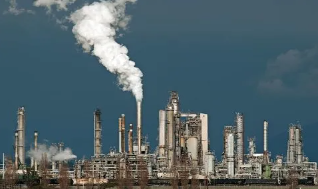- Acetylene method Using zinc acetate supported on activated carbon as a catalyst, acetylene and acetic acid are reacted under normal pressure and 170-230 ℃. The reaction product is subjected to powder separation, gas separation, aldehyde removal, crude distillation and rectification to obtain refined vinyl acetate.
- Ethylene gas phase method Ethylene, oxygen and acetic acid are reacted in gas phase under the condition of palladium-gold (or platinum) catalyst at 160~180℃ and pressure <1MPa to generate vinyl acetate, and then separated and rectified to obtain fine products.
- Ethylene liquid phase method Ethylene and acetic acid are reacted with palladium chloride-copper chloride as a catalyst to obtain vinyl acetate.
- Acetaldehyde acetic anhydride method Using acetaldehyde acetic anhydride as raw material, firstly synthesizing ethylene diacetic acid, and then through deacetic acid reaction, it is synthesized by one-step method or two-step method.


